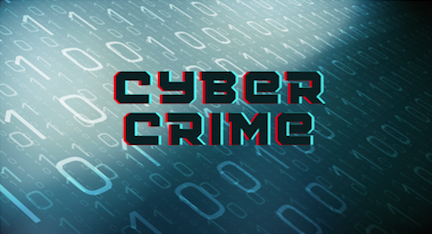The Impact of Cybercrime on Small Communities
In the digital age, cybercrime has emerged as a pervasive threat, affecting not just large corporations and urban areas but also small communities. The impact of such criminal activities on smaller, often less protected environments can be particularly devastating. This article explores the multifaceted effects of cybercrime on small communities, highlighting the need for robust cybersecurity measures and the role of solutions like Guardio in safeguarding these vulnerable areas.
Understanding Cybercrime in Small Communities
The Nature of the Threat
Cybercrime in small communities often goes unnoticed in the broader discourse on cybersecurity. Yet, these sectors are now more frequently targeted, often due to their generally weaker security measures and lower awareness levels. Typical cybercrimes encompass phishing, malware assaults, identity theft, and financial scams.
Vulnerability of Small Communities
Small communities often lack the resources and infrastructure to implement comprehensive cybersecurity measures. This vulnerability makes them attractive targets for cybercriminals looking for easy entry points into larger systems or seeking to exploit local businesses and residents.
The Economic Impact of Cybercrime
Financial Losses to Businesses
For small businesses, a cyber attack can have severe financial implications. The cost of recovering from a breach, coupled with lost revenue due to downtime, can be crippling. In extreme cases, it can lead to business closure, which is a significant blow to small community economies.
Ripple Effects on Local Economies
The economic impact of cybercrime on small communities extends beyond direct financial losses. It can erode consumer trust and deter investment, further straining the local economy. Small businesses are often the backbone of these communities, and their destabilization has far-reaching effects.
Social and Psychological Effects
Erosion of Trust
Cybercrime can significantly erode trust within a community. Incidents of identity theft and financial fraud can lead to a loss of confidence in local institutions and businesses, impacting community cohesion and cooperation.
Psychological Impact on Victims
Cybercrime exacts a significant psychological toll on those affected. Victims frequently experience intense vulnerability, increased anxiety, and feelings of violation, more so in smaller communities where personal ties and trust run deeper.
Tackling Cybercrime: Key Obstacles
Educational Gaps and Awareness Shortfalls
In smaller communities, a primary obstacle is insufficient awareness and understanding of cyber threats. This lack of knowledge hinders residents and businesses from adopting adequate cybersecurity practices.
Limited Resources for Cybersecurity
Smaller communities often have limited budgets for cybersecurity, making it difficult to invest in necessary technologies and training to combat cyber threats effectively.
The Role of Community Collaboration
Building a Culture of Cybersecurity Awareness
Creating a culture of cybersecurity awareness is crucial in small communities. This involves regular education campaigns, sharing best practices, and encouraging vigilance among community members.
Collaboration with Law Enforcement and Experts
Partnerships with law enforcement and cybersecurity experts can provide small communities with the guidance and resources needed to strengthen their defenses against cybercrime.
Implementing Effective Cybersecurity Measures
Basic Cyber Hygiene Practices
Adopting basic cyber hygiene practices, such as using strong passwords, regularly updating software, and backing up data, can significantly reduce the risk of cyber attacks.
Investing in Robust Security Solutions
Investing in robust cybersecurity solutions is essential. This includes firewalls, anti-virus software, and secure network infrastructures that can protect against a range of cyber threats.
The Role of Cybersecurity Solutions Like Guardio
Guardio offers a line of defense for individuals and businesses in small communities. By providing accessible and effective cybersecurity tools, it helps protect against common cyber threats, reinforcing the overall security of the community.
Preparing for the Future
Staying Informed About Emerging Threats
To effectively combat cybercrime, small communities must stay informed about emerging threats and evolving cybercriminal tactics. This ongoing education can help in adapting defenses accordingly.
Encouraging Technological Innovation
Encouraging technological innovation and investment in cybersecurity infrastructure can significantly enhance the resilience of small communities against cybercrime.
To conclude
Cybercrime’s effect on small communities is extensive, disrupting economic steadiness, social cohesion, and mental health. Tackling this challenge demands collective action, encompassing educational initiatives, collaborative endeavors, and financial commitment to cybersecurity strategies. Solutions like Guardio play a crucial role in providing accessible cybersecurity tools, helping to shield these vulnerable communities from the growing menace of cyber threats. As technology continues to evolve, so must the strategies to protect against its misuse, ensuring the safety and prosperity of small communities in the digital age.





















